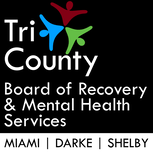 Stress level: Midnight by Sara V. Used under Creative Commons license.
Stress level: Midnight by Sara V. Used under Creative Commons license. The writer opens her essay with “Stress is like oxygen to me.” That’s a powerful statement, and indicative of how constant stress can be. It’s important to distinguish, though, between stress – the feeling of pressure to do something – and anxiety – which is excessive worry.
Momentary stress as a trigger for adrenaline is a survival mechanism. It’s that sudden burst of energy that gets us out of a dangerous situation, or helps us finish a project by its deadline. Chronic stress, though, that never lets up and never goes away can have serious effects on both mental and physical health.
Stress that causes frequent anxiety or chronic stress that never goes away can impair our ability to live, laugh and love. That is, when stress affects our ability to work and be productive, to enjoy life, and to maintain meaningful personal relationships, then it is time to address it.
“God, grant me the serenity to accept the things I cannot change, the courage to change the things I can, and the wisdom to know the difference.”
The “Serenity Prayer” is about making the choice to take control, or to accept circumstances as they are. It’s a good starting point for those who feel powerless when making harmful life choices, but it doesn’t tell the whole story, and it doesn’t fit all circumstances.
In my household, we have our own version: IRB. Me: “I don’t like ___.” Wife: “Well, then, change ___.” Me: “I’d rather b****.” Crude, but effective: Take control or let it go.
The writer is a successful up-and-comer in a tough field. Journalists live in a double-whammy stress environment of constant deadlines and public scrutiny. Add to that the economic challenges to publishing in the digital age and it’s no wonder she sometimes feels “overworked and underappreciated.”
She writes: “I’m not fighting to stay alive. I’m fighting to measure up, but sometimes I forget what it’s like just to sit and feel like a person.” Grades, GPA, college applications, job applications – young people can feel their every move is evaluated and scored. For some, constant feedback and approval from others becomes a need. Or as the writer says, “[I] need to have a discernable gauge of my work and my worth – to know if what I am doing is actually enough.”
Constant measuring can lead to over-competitiveness. Is it really important to have more “Friends” or “Likes” on Facebook, or more views on Youtube or more Follows on Instagram? Or, more seriously, is it really a big deal when that pickup truck passes you on the Interstate? When stress turns to road rage, it’s dangerous, and time to seek help.
We have a tremendous array of both self-help and professional help options, if we only think to use them. It’s important to know that individuals respond differently, and that feeling like an intervention isn’t working can itself become a stressor. Some describe this strategy as intentionally building margins into your daily schedule –spaces where you engage in activity for the purpose of renewing and refreshing your mental, spiritual, or physical health.
For example, many people find caring for a pet to be a tremendous source of relaxation. Caring for another living thing can take us outside of ourselves. However, if your particular life circumstances aren’t compatible with caring for an animal, then don’t try to force it.
We have great parks in Miami, Darke and Shelby counties. A short walk on a nature path, or a couple hours of birdwatching, can be a way to decompress. But for some, striving to reach a daily step count or complete a birder’s checklist can become a source of stress. The lesson here? Stop keeping score.
In those cases where life’s challenges become intolerable, or an individual is having trouble coping with everyday stress that impairs the ability to live, laugh and love, professional help is available. Talk to a family doctor. Many find relief by spiritual paths from talking to a pastor or priest. The Tri-County Board supports a network of care that includes counselors and therapists at Shelby County Counseling Center, Miami County Recovery Council, Recovery and Wellness Centers of Midwest Ohio, and other related services.
A good first step is to call the Mental Health HOPE Line, 937-451-3232, or toll-free 855-276-HOPE (4673). The HOPE Line provides social support and a caring friend to talk to. Information provided by the HOPE Line includes basic mental health coping skills and referrals on where to go for help. The HOPE Line is answered from 4pm to 11pm Monday through Friday, and 4pm to 8pm Saturdays and Sundays.
If you, a friend, a co-worker or a loved one appears to be having a mental health crisis that is not a medical emergency, the 24-hour Tri-County Crisis Hotline, 800-351-7347, can connect residents of Shelby, Darke and Miami counties with appropriate services.
Residents can also find resources and contact information on the Tri-County Board website, www.tcbmds.org.
To one degree or another, stress is part of everyday life. But when it interferes with our ability to live, laugh and love, help is available.
 RSS Feed
RSS Feed
